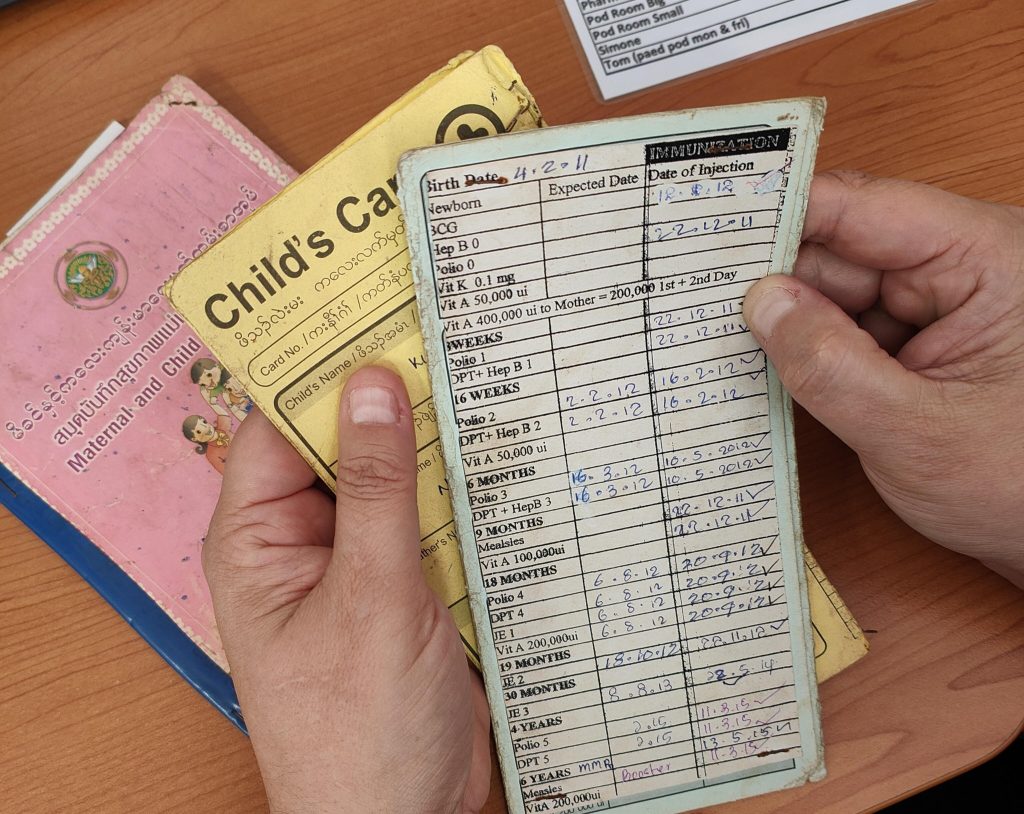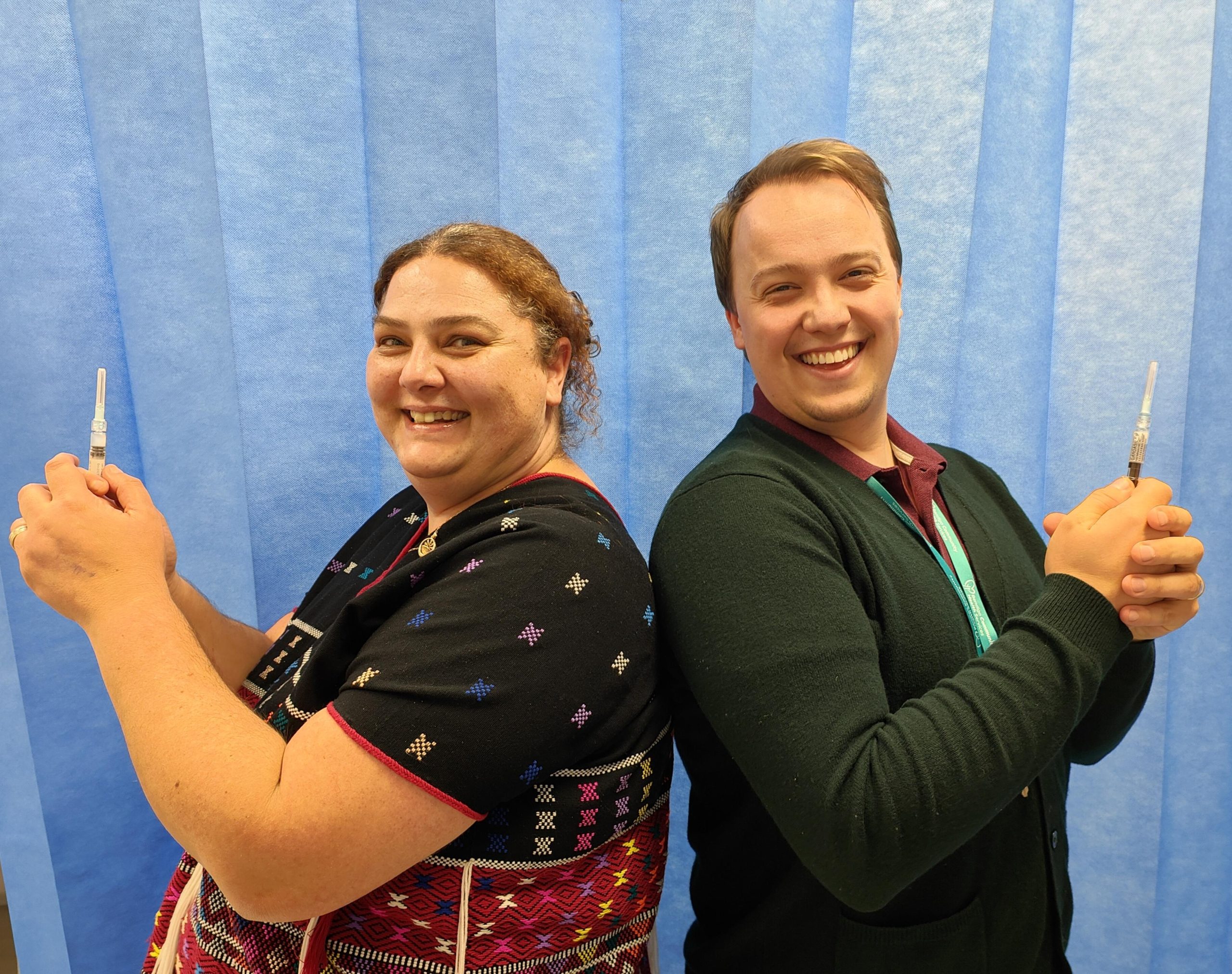Nurse Veronica Steegs and Dr Michael Barclay are the ultimate quiet achievers. They’re usually too busy to talk about their work, running BCHS’ incredibly busy Refugee Health Clinic, but the word is out.
In June, 2025, this tiny team won the Public Health Association of Australia’s annual GSK Immunisation Award, thanks to their outstanding and unique efforts to reach a 100 per cent immunisation rate for all newly arrived refugees to Bendigo.
“It’s amazing,” Veronica said. “It’s just me and Michael, we’re a little team, but we work really, really well together and we get important things done.”
The award was for improving access to, coverage and timely delivery of the National Immunisation Schedule to hard-to-reach populations, in this case, people arriving from places of conflict, persecution and human rights abuses, being Sudan, Afghanistan and Myanmar.
“There’s so many barriers to healthcare for these people,” Veronica said. “And when there’s barriers, that’s when things get missed or people aren’t looked after properly. When they come here, we try to break down those barriers, for example, language.”
The clinic uses interpreters, they give out information in language, they draw on the support of BCHS’ bicultural workers, and they encourage their clients to ask questions.
“That communication barrier is totally gone when they come to the Refugee Health Clinic here,” Veronica said.
“I have a lot of clients come who’ve had immunisations overseas, but they didn’t even know what it was for. We give that information in language, and use interpreters to explain, and they understand. They also get reminder phone calls about their appointments, and that’s with the help of our bicultural workers.

“We get a hundred percent catch-up for every individual within six months of their first visit. It’s actually quite special because not everywhere achieves that. We also offer flu and COVID immunisations.”
Veronica goes even further to make the process easier on her clients – launching a mini investigation for each person to determine what immunisations they may or may not have already had before arriving in Australia.
For all clients, she starts with asking if they have a Child’s Card for themselves or their children. These flimsy cards, filled out by hand, may be their only official proof of immunisation.
“Some of these immunisation cards are 20 years old,” she said. “By going out to their homes and asking them did they bring their Child’s card with them, I’m able to get more information than what is just on the computer, like health assessments that are being done over in the camp.
“I’m then able to put all those onto the Australian Immunisation Registry and then from their very first visit with Dr Barclay, he can develop an immunisation schedule catch-up.
“It’s very time intensive, but it’s worth it. These little Child’s Cards are like gold when people come with them. Imagine having to start from scratch.”
Veronica said if people don’t have a record of immunisations they’ve had overseas, they have to start their schedule as if they were a baby.
“I do this because nobody likes having injections and I don’t want to have to give them any duplicate immunisations.”
Veronica shuffles some examples of the Child’s Cards on her desk; pastel coloured, creased and carrying so much more than the brief information noted by hand.
“Sometimes you can smell the wood fires the people cooked on,” she said. “You can smell the camp.”
Congratulations to Veronica and Michael and their supporting team of Settlement Services, Cultural Diversity and Client Services staff on the national recognition of their work.
By LAUREN MITCHELL
